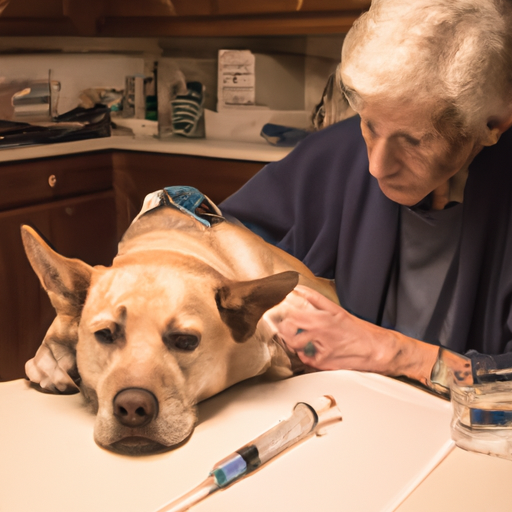Introduction
You’re a caregiver, a nurturer, a companion. You’re the one who has always been there for your furry friend, through thick and thin. But now, you’re facing a tough decision, one that’s heavy with emotion and responsibility. Your dog has dementia, and you’re wondering when – or if – euthanasia is the right choice. This guide aims to provide you with the information you need to make the best decision for your beloved pet.
Understanding Canine Cognitive Dysfunction
Canine Cognitive Dysfunction (CCD), also known as dog dementia, is a progressive disease that affects the brain of older dogs. It’s similar to Alzheimer’s in humans, leading to confusion, disorientation, and changes in behavior.
The symptoms of CCD include:
- Changes in sleep patterns
- Loss of house training
- Reduced interaction with family members
- Confusion and disorientation
- Changes in activity levels
The diagnosis of CCD is usually made based on the dog’s history and clinical signs, as there is no definitive test available.
Deciding When to Euthanize
Making the decision to euthanize a pet is never easy, and it’s a deeply personal choice that only you can make. Here are some factors you might want to consider:
- Quality of Life: Is your dog still enjoying life, or is he suffering? There are several quality of life scales available, such as the HHHHHMM Scale, to help you assess this.
| Category | Score (0-10) |
|---|---|
| Hurt | |
| Hunger | |
| Hydration | |
| Hygiene | |
| Happiness | |
| Mobility | |
| More Good Days |
-
Prognosis: What is the likely progression of the disease? Your vet can help you understand this.
-
Your Own Limits: What can you cope with, physically and emotionally? It’s important to be mindful of your own well-being, too.
Coping with Grief
The loss of a pet is a significant event, and it’s normal to feel a deep sense of grief. Here are some strategies that might help:
- Allow yourself to grieve: It’s ok to feel sad and to cry. Your feelings are valid.
- Reach out to others: Talking to friends or family who understand what you’re going through can be very helpful.
- Memorialize your pet: Creating a memorial can be a therapeutic way to honor your pet’s memory.
FAQs
-
What is Canine Cognitive Dysfunction?
Canine Cognitive Dysfunction (CCD) is a disease that affects the brain of older dogs, causing symptoms like confusion, disorientation, and changes in behavior. -
How is CCD diagnosed?
CCD is usually diagnosed based on the dog’s history and clinical signs, as there is no definitive test available. -
When should I consider euthanizing my dog?
This is a deeply personal decision that depends on factors like your dog’s quality of life, the progression of the disease, and your own emotional and physical limits. -
How can I cope with the loss of my pet?
Allow yourself to grieve, reach out to others for support, and consider creating a memorial to honor your pet’s memory.



